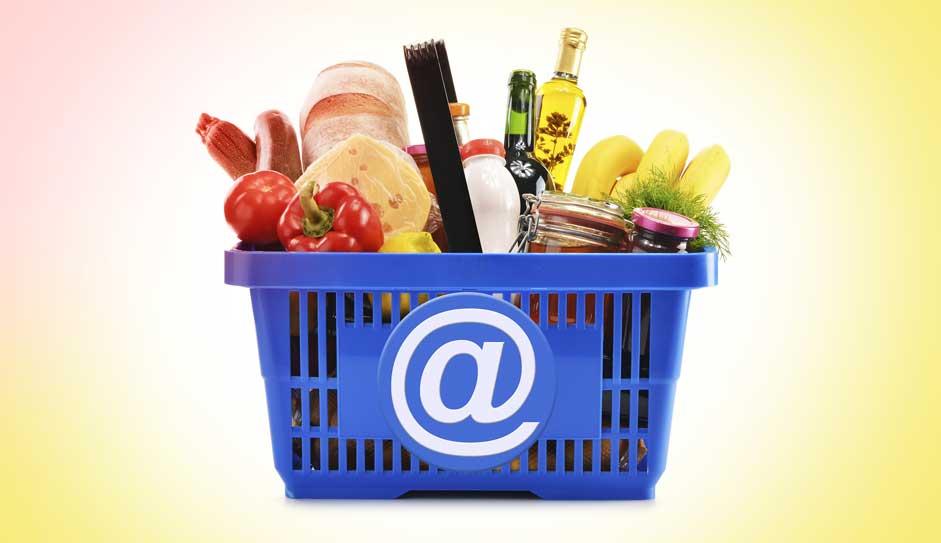Localbanya Brings The Shopping Cart Into Your Home

If estimates are to be believed, e-commerce is set to be a USD 15 billion market by 2016 with 100 million Indians expected to be shopping online. That’s still under 10 percent of the country’s population. A number of players have recently occupied this market, with Localbanya being one of the latest, and possibly fastest growing, entrants. The business recently launched in Hyderabad, its third city after Mumbai and Pune. Rashi Choudhary, one of the founders of Localbanya, recently shared with us her views on the Indian e-commerce market and Localbanya’s role in it.
Localbanya was born out of a B2B food distribution business Karan Mehrohtra started in Mumbai. Word spread quickly and he suddenly found himself servicing 200 households with everyday grocery items. Seeing potential in scaling this up, Karan met Rashi through a common friend, Amit Naik and in September 2011, the three of them put their heads together and thought up Localbanya, an online grocery store.
After studying the e-commerce market and setting up an online platform, Localbanya was ready to launch in Mumbai in May 2012. With hardly any antecedents to speak of, they built everything up from scratch, relying on common sense and innovative ideas. They developed a strong understanding of how to manage logistics, a major component of e-commerce, for their various product lines – from pulses to perishables. Another challenge to be tackled at the outset was creating an online presence and awareness among consumers. Their target consumer category comprised 25 to 45 year olds.
From their logo to their website, everything points to cool, quirky and fun. They also believe this sets them apart from competition. Grocery shopping, they believe, should be fun and not a chore. They take seriously the need to keep refreshing their product offerings, so summer brings a stock of organic mangoes to their store. They’re even offering a subscription for mangoes so you can have them delivered on a regular basis.
Sugar, milk, eggs continue to be the fastest selling items online while imported fruits and vegetables are harder to sell, not just because they are priced higher but also because consumers are not sufficiently aware of their uses. They attempt to overcome this by creating a lot of online content to raise awareness about the uses of these products.
So how do they stay competitive? The FMCG business is unfortunately known for thin margins. Localbanya’s focus is to keep prices down on key grocery items that you’d ordinarily buy from your neighbourhood kirana store. Bulk purchasing and airtight vendor contracts are also key. Fruits and vegetables are bought directly from farms and wholesalers to cut out intermediate costs. The focus online, is on daily discounts and cross-promotions to keep deals attractive.
Mumbai leads the numbers with 800-850 deliveries a day and an average basket size of INR 1,400. Pune and Hyderabad are yet to see similar numbers because Localbanya has recently launched in these cities.
After Mumbai, Pune and Hyderabad, Localbanya has its sights set on six new cities in the next six months and a total of 12-13 cities by the end of the year. They’re focused on tier-1 cities first owing to their ease of access. Having local teams based in every city allows them to understand local tastes and culture and how their product offerings must change to suit the market. They’ve experimented with different logistics models in every city, which they see as a great learning experience for future expansion. While in Mumbai they maintain a large warehouse, Pune and Hyderabad operate on smaller ones that mainly serve as consolidation centres. They’ve employed an inventory-light model in Hyderabad by outsourcing to partners. The lessons they’ve learnt about purchase quality and how to buy, store and deliver better has helped them improve with every expansion. Localbanya closely monitors deliveries right from the warehouse to the customer’s doorstep through GPS-enabled vehicles. This way, they achieve a 98 percent on-time delivery rate.
Young mothers, working professionals, retirees and the disabled form the bulk of Localbanya’s customers – folks who prefer shopping from the comfort of their homes. Only 15 percent of Localbanya’s revenue comes from business customers, so the focus strongly remains on retail customers.
Rashi isn’t too concerned about a giant like Flipkart entering the online grocery business because there’s room for everybody. “It’s a huge industry that hasn’t been tapped by modern trade”, she says. While companies like Flipkart have the backbone and infrastructure to enter tier 3 and 4 cities fairly quickly, she says they will have to change the way they think about shipping deliveries. Groceries cannot be shipped at a national level. Localised warehouses are the only way to go.
In terms of diversifying product lines, Localbanya has just started retailing home appliances and ice cream in addition to their current offering. They aim to be a one-stop shop for anything home-related.
Rashi’s advice to aspiring entrepreneurs:
1. Get the right co-founders – People with business skills you may not have yourself who feel the same sense of ownership and dedication that you do for the business. “It’s important to sell the idea to yourself and your co-founders and believe in it.”
2. Don’t wait for “the right time” – If you have an idea that you’re sold on, go after it. Don’t wait for the right time because someone else, with deeper pockets, may go after it. There’s no perfect execution, there’s a learning curve with any business that you start.
3. Don’t expect to have a social life or money in your pockets when you’re starting out. Long hours are “absolutely normal and absolutely right” when working on your business idea.





 In
In  17014
17014
























Add new comment